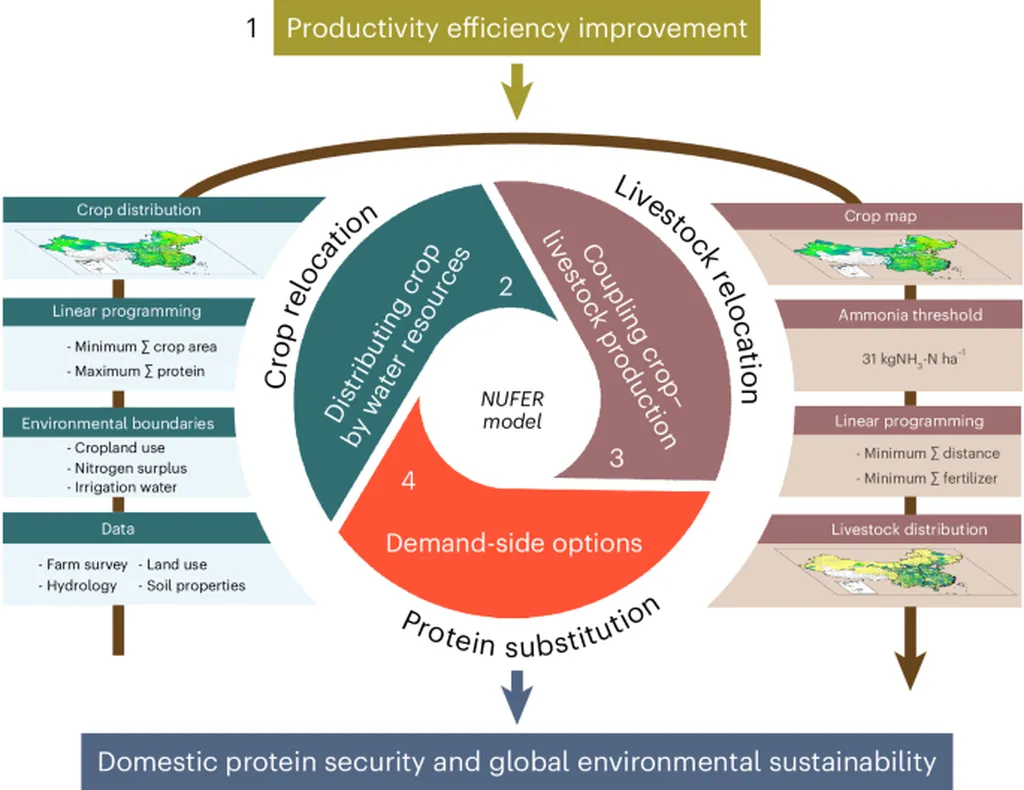In the heart of China’s hilly and mountainous regions, a new study is shedding light on how to optimize agricultural operations, with significant implications for the energy sector and sustainable food systems. Led by ShiChao Zhang from the Chongqing Key Laboratory of Surface Process and Ecological Restoration in the Three Gorges Reservoir Area at Chongqing Normal University, the research focuses on the moderate-scale operations of new agricultural business entities (NABEs) in Chongqing’s Jiangjin Modern Agricultural Park.
The study, published in the journal *Frontiers in Sustainable Food Systems* (which translates to “前沿可持续食品系统” in Chinese), investigates the optimal operating scales for citrus, pepper, and grain farming, and identifies strategies for achieving these scales. Using data from 277 NABEs, the researchers employed a translog production function to determine moderate-scale thresholds and a structural equation model (SEM) to explore both internal and external pathways to reach these thresholds.
The findings reveal that the average moderate scale per labor for citrus, pepper, and grain farming is 2.55 hm², 2.67 hm², and 1.72 hm², respectively. Notably, pepper farming has the highest share of NABEs reaching the moderate scale, while grain farming has the lowest. “Most NABEs operate either below or above the moderate scale,” Zhang explains. “For those exceeding the moderate scale, internal pathways such as improving effective labor, adjusting business models, and investing in fixed assets and liquidity are key. For those below, external pathways like expanding their farming scale under suitable conditions are crucial.”
The study offers practical guidance for NABEs to achieve moderate-scale operations, which can lead to more efficient and sustainable agricultural practices. For citrus farming, NABEs should prioritize villages with higher per capita arable land and improved land conditions. For pepper and grain farming, focusing on areas with higher per capita income and proximity to residential settlements is recommended.
The commercial impacts of this research are significant, particularly for the energy sector. Efficient agricultural practices can reduce the energy required for farming operations, leading to lower carbon emissions and a more sustainable food system. Additionally, the study’s findings can inform policy decisions and investment strategies, helping to shape the future of agriculture in hilly and mountainous regions.
As Zhang notes, “This study contributes to the ongoing efforts to modernize agriculture and address challenges such as land fragmentation, low mechanization efficiency, and population aging.” By providing a data-driven approach to achieving moderate-scale operations, the research offers a roadmap for NABEs to enhance their productivity and sustainability, ultimately benefiting the broader agricultural and energy sectors.

